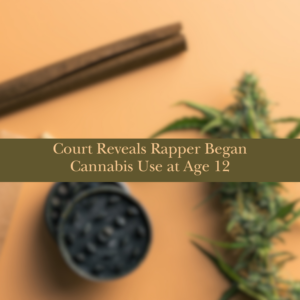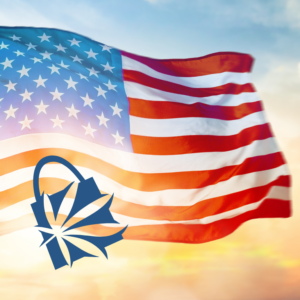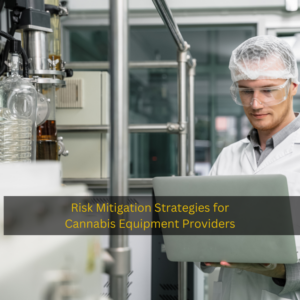North Dakota’s New Rules Frustrate Cannabis Retailers

New Rules for Cannabis Products in North Dakota: Industry Faces Challenges
New rules for cannabis products sold in North Dakota went into effect on July 1, but members of the industry say it’s already difficult running a hemp business in the state. The new regulations, implemented by the North Dakota Agriculture Department, aim to ensure more detailed labeling on cannabis product packaging and to reinforce restrictions on psychotropic hemp products that may be trying to circumvent established rules.
Some North Dakota hemp processors see the continuous updating of regulations as a major hurdle to their businesses in what is generally considered a business-friendly state, the North Dakota Monitor reported.
Shane Weber, co-owner of Badlands Hemp near Taylor, said his company has been processing hemp into different products in-state since 2020. He noted that while starting a small business is challenging enough, starting a hemp business presents its own unique set of difficulties.
“There are more hurdles, there’s more red tape,” Weber said. “Anything from banking to insurance, all of that stuff is more difficult for us compared to someone who’s just making candles or something like that.”
He added that while the state Agriculture Department has been helpful in answering any questions his company has about the state’s cannabis rules, he’s noticed other hemp processors moving to nearby states with looser cannabis regulations in recent years.
“I live here, we’ve got a chunk of land out here, we’re not gonna go anywhere,” Weber said, adding that Badlands Hemp would expand if voters approve a recreational marijuana law.
Timothy Frey, spokesperson for Ignite Dispensary in Bismarck, said that while the CBD dispensary is a legal business in North Dakota, he’s found it difficult to maintain the business relationships needed to operate.
“I’ve been dropped by two credit card processors, I’ve been dropped by my payroll company, and I’ve gotten denied by 12 banks in Bismarck,” Frey said.
He explained that the 13th bank, which the business ended up using, requires him to send quarterly lab reports to the bank. The bank conducts an annual on-site inspection at the store, and Ignite Dispensaries are charged a $500 premium per month to use a checking account.
Frey said he doesn’t mind following all the rules because he wants to prove to the state Agriculture Department that his business is completely above board and ready to become one of the first retail cannabis stores if a recreational marijuana law is passed in the state.
Proposed Ballot Initiative
Sponsors of a proposed North Dakota recreational marijuana ballot initiative submitted signatures on July 8 to the Secretary of State’s Office for possible inclusion on the general election ballot.
Regulatory Changes and Industry Response
Under new rules from the state Agriculture Department, labels on cannabis products sold in North Dakota will need to be tied to a certificate of analysis from a certified lab that discloses the total cannabinoid levels of the product. The new rules also change the definition of tetrahydrocannabinol (THC) and cannabinol (CBD) products to include language aimed at catching additional cannabis product offshoots and precursors, such as tetrahydrocannabinolic acid (THCa).
THCa is created by cannabis plants during their growth cycle and transforms into non-acidic Delta-9 THC as it is exposed to air and heat, according to the National Institutes of Health. The Cannabis Business Times reported that the THCa product industry went from “negligible” sales in 2022 to more than $200 million in sales just one year later, which accounted for more than 7% of sales for the entire hemp-derived THC market.
North Dakota Agriculture Commissioner Doug Goehring said the new rules prohibit THCa products sold in North Dakota and any additional precursor or THC variants used in the future.
“We are going to make sure that psychotropic substances, or any altered product, is not available for retail sales in North Dakota,” he said.
Goehring explained that the department has been running a hemp program for production, processing, and distribution, as well as other facets of the hemp product industry, since Congress approved the 2014 farm bill. After the 2018 farm bill, he said, Delta-8/9/10 THC-variant products began appearing in the marketplace.
“What was happening is they were cutting product with an organic acid and creating a psychotropic drug and that was never intended with hemp,” Goehring said.
He noted that the process continued with more synthetic substances being used to make cannabis products that seem to skirt hemp regulations.
“It was just creating such a quagmire that you couldn’t continue to address in Century Code (state law), so the Legislature said, ‘We want this clarified, just create administrative rules,’” Goehring said. “We have the ability then to address things and we have to keep it within legislative intent and what the directive was. … It also means that we can react much quicker to something if it changes.”
Public Hearing and Retailer Concerns
A hearing for the cannabis product rule changes was held in February, and multiple retailers made comments during the event.
Frey spoke on behalf of Ignite Dispensaries during the event, stating that many of their customers use hemp, CBD, and low, microdose Delta-9 products to address chronic conditions and pain.
“History has proven that prohibition is not the answer,” Frey said during the hearing. “Hemp, CBD, and low-dose, microdosing of Delta 9 is not the ‘devil’s lettuce’ the older generations grew up on.”
Frey warned that the new prohibitions would increase black market sales of THC products and the number of North Dakotans traveling to other states to purchase the products legally.
He also advocated for cannabis products to be removed from gas stations and only sold through licensed dealers to ensure the products can’t be obtained by minors.
Matt Yde, the owner of two Your CBD Store locations in Fargo, testified that his customers were not looking for a product that gets them high. “They’re just looking for the most therapeutic products to help them,” he said.
Goehring stated that if any retailer or hemp product licensee wants to challenge the new rules in court, the department believes it has the knowledge and data to explain the differences between various cannabis products and why they are legal or illegal to a judge or jury.
Detailed Labeling Requirements
John Mortenson, hemp product specialist for the Agriculture Department, said the new labeling rules for cannabis products may require retailers to use a QR code that links to a certificate of analysis product report on a website to keep the label in a readable font size.
If products didn’t use a QR code and tried to fit all the information on the label, Mortenson said, “It would be lawyer-print beyond belief.”
The new labeling rules require cannabis products sold in the state to include:
- All ingredients, allergens, and expiration date.
- A recommended serving suggestion.
- The maximum total THC of the product expressed in milligrams.
- A nutritional panel.
- Consumer warning messages.
- Messages to prevent product access by minor children.
- No health claims.
Weber said Badlands Hemp was already including detailed product labels with all the necessary information, so the new rules won’t affect the business.
Many of the prohibited products are being shipped to North Dakota customers through the U.S. Postal Service, which limits state-level oversight, Mortenson said.
“The feds are actually working towards fixing that right now through the (new) farm bill and then the DEA just released a letter … saying that THCa is a component of marijuana. This is not a hemp product,” he said.
Mortenson explained that he visits retailers to ensure they are in compliance with state law. Those shop owners told him they have been approached by lawyers in the past who presented them with a letter that said the state’s prohibited cannabis products are actually legal, something Mortenson disagreed with.
Mortenson said the letters cover U.S. Department of Agriculture rules that govern hemp production in the farm bill, not the final products themselves.
“It’s kind of this weird little loophole, but we’re not the only state that has come at this problem,” he said.
To summarize, On July 1, new cannabis product regulations were implemented in North Dakota, requiring detailed labeling and reinforcing restrictions on psychotropic hemp products. Industry members, including Shane Weber of Badlands Hemp and Timothy Frey of Ignite Dispensary, express concerns about the increasing regulatory hurdles. They highlight the difficulties in banking and maintaining business relationships. The new rules aim to clarify product definitions and prevent synthetic THC variants, with the state emphasizing strict compliance to maintain legal standards. Despite the challenges, some businesses remain committed to operating within the state, hoping for future regulatory changes.











